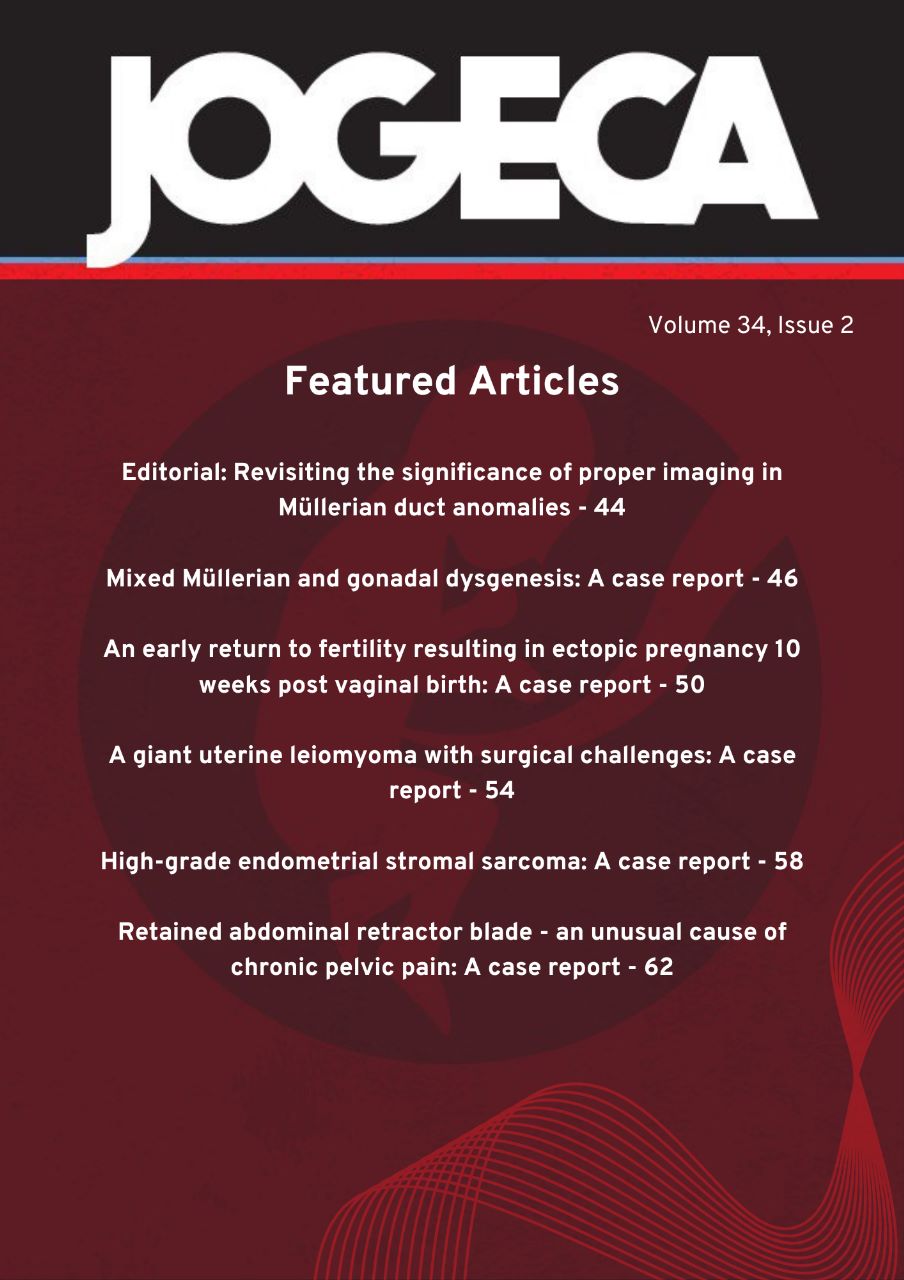Prevalence, characteristics, and associated determinants of postpartum depression among adolescent mothers in Kenyatta National Hospital and Pumwani Maternity Hospital from March to July 2023: A prospective, cross-sectional study
DOI:
https://doi.org/10.59692/jogeca.v36i1.148Abstract
Background: Postpartum depression (PPD) is a depressive episode that occurs in women within 6 weeks of parturition. It has a global prevalence of 13-19%. Long-term consequences include a high likelihood of experiencing depression in mothers, suicide, and infanticide. There is currently no routine screening for postpartum depression at the postnatal clinic.
Objectives: To determine the prevalence of postpartum depression among adolescent mothers, characteristics, and associated determinants in Kenyatta National Hospital (KNH) and Pumwani Maternity Hospital (PMH).
Methods: This was a cross-sectional study, involving 162 consenting postnatal adolescent mothers (14-19 years) at Kenyatta National and Pumwani Maternity hospitals. Consecutive sampling was employed. Data were collected using a structured sociodemographic questionnaire and the Edinburg Postpartum Depression Scale (EPDS). Data were analyzed using SPSS version 25.
Results: Of all participants, 77.2% were from PMH and 22.8% were from KNH. Most participants were 18–19 years old, had primary education as the highest entry level, were single, depended on their parents for financial support, and were Christians. For obstetric characteristics, the majority had no history of miscarriage, were primipara, had unintended pregnancy, had amenorrhea as the first symptom, had an initial antenatal clinic (ANC) visit during the first trimester, had at least four ANC visits, and delivered via spontaneous vaginal birth. The prevalence of postpartum depression was 22.2%. The most prominent characteristics of PPD were feeling overwhelmed, sadness, anxiety, and crying episodes. Associated determinants of PPD in adolescent mothers were age <18 years, starting ANC visits after the second trimester, less than four ANC visits, being HIV-positive, unsupportive partner, and having a post-delivery illness for the mother.
Conclusion: This study established that approximately one in four adolescent mothers are likely to suffer from postpartum depression.
Downloads
Published
How to Cite
Issue
Section
Categories
License
Copyright (c) 2024 GATHONI MURIITHI, Prof. Kihara A.B, Pius A. Kigamwa

This work is licensed under a Creative Commons Attribution 4.0 International License.




